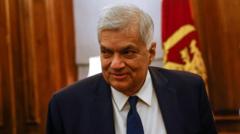President Recep Tayyip Erdogan of Turkey has firmly rejected allegations that he intends to amend the constitution to extend his presidency beyond his current term, which is set to expire in 2028. Erdogan, who has held power for an impressive 22 years—initially as prime minister from 2003 and then as president since 2014—asserts that his objective in pursuing constitutional reform revolves around improving governance for the nation, rather than personal political gain.
In a recent press conference, Erdogan conveyed his lack of interest in seeking re-election or remaining in power, saying, "We want the new constitution not for ourselves, but for our country." His statement comes amidst a backdrop of increasing speculation regarding his future. Following a lighthearted exchange with a singer about potentially running again, his party spokesperson implied that the discussion of another term is pertinent, proclaiming, "What is important is that our nation wants it."
While Erdogan maintains a strong following, he currently finds himself trailing behind his main opposition competitor, Ekrem Imamoglu, the mayor of Istanbul, in opinion polls. Imamoglu's recent imprisonment on corruption charges, which he denies, has garnered significant public attention and outcry, raising questions about the political climate in Turkey. Many of his supporters perceive the charges as politically motivated, leading to protests of unprecedented size in recent years.
In response to Imamoglu’s detainment, the Turkish authorities have rapidly escalated measures to limit his influence, including blocking his social media accounts and arresting staff members within his administration. This apparent crackdown against the opposition highlights the existing tensions present within Turkish politics.
Erdogan has also pointed out the need for a new constitution, stating that the current one—largely instigated following Turkey's military coup in 1980—fails to reflect the citizens' perspectives. He argues that a constitution created under such tumultuous circumstances is ill-suited for modern governance. The present constitutional framework permits only two consecutive five-year presidential terms, and while Erdogan's first term was prior to the transition to presidential rule, it raises complex legal questions regarding his eligibility.
To initiate a constitutional referndum, Erdogan would require support from a minimum of 360 members of the 600-seat parliament, a threshold he currently lacks, despite recent political maneuvers aimed at fostering Kurdish support. Erdogan’s overtures towards peace with the Kurdistan Workers' Party (PKK) may signal a strategic effort to gain additional backing for constitutional reforms.
Critics like Ali Mahir Basarir, the deputy chairman of Imamoglu's Republican People's Party (CHP), claim Erdogan's chances of running again remain slim, emphasizing the constraints of the very constitution he helped shape. While the prospect of early elections exists, Basarir suggests that Erdogan's current stance indicates reluctance in that direction as well.




















